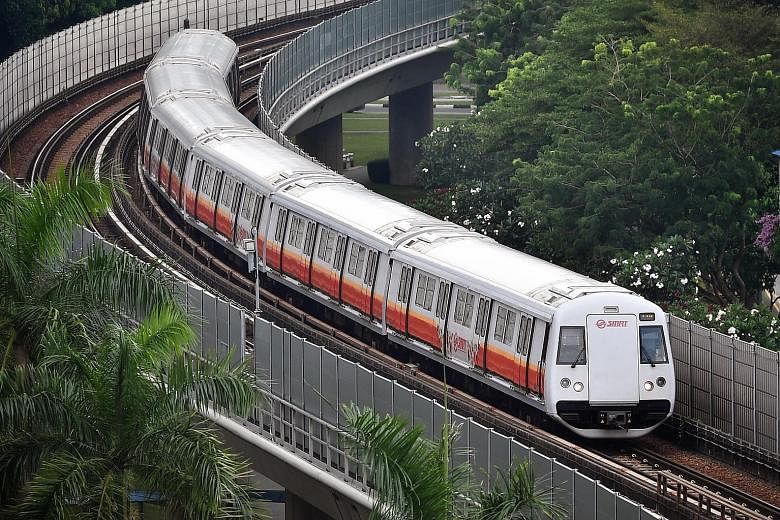SMRT Trains' reported losses are perplexing (SMRT Trains' losses soar to $155m on higher operating costs, Aug 1).
And the explanations offered by transport economist Walter Theseira are counter-intuitive.
System reliability does not come from excessive expenditure on ineffective maintenance work. It comes from regular, scheduled and quality preventive maintenance that ensures train services are running 99.9 per cent of the time.
At first glance, revenue does not appear to be the problem. Just last year, SMRT reported that it could recover 101 per cent of spending from farebox collections, and that ridership has only grown since then.
What does stand out is the substantial increase in maintenance expenditures, from 45 per cent of costs in 2016 to 62 per cent in 2018. This figure is significantly higher than for other comparable transit systems.
Looking at Japanese subways and Hong Kong's MTR, maintenance represents between 33 and 50 per cent of operating costs, despite the advanced age of their infrastructure and trains compared to SMRT's.
Moreover, as a former mechanical engineer, I would expect a rail system to have fairly even maintenance costs over the years, since the useful service life of components is known with a high degree of certainty.
Japanese railways, for instance, replace equipment at fixed time or mileage intervals, even if wear and tear was less than anticipated.
Preventative works can be scheduled well in advance, and costs distributed across an extended timeframe.
Even if we accept that some of SMRT's equipment may have required premature attention, one would not expect such a drastic year-on-year increase.
It is more plausible that the loss stems from poor managerial planning and operating efficiency. Deferred maintenance over preceding years may have caused expenditures to snowball.
Any organisation is as good as the people who run it. I am certain SMRT will be able to deal with the problems soon.
Paul Chan Poh Hoi

